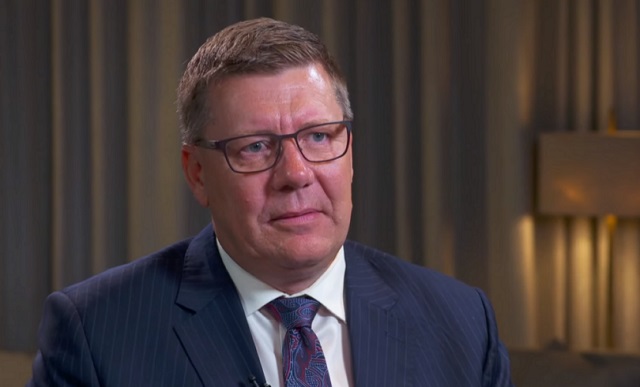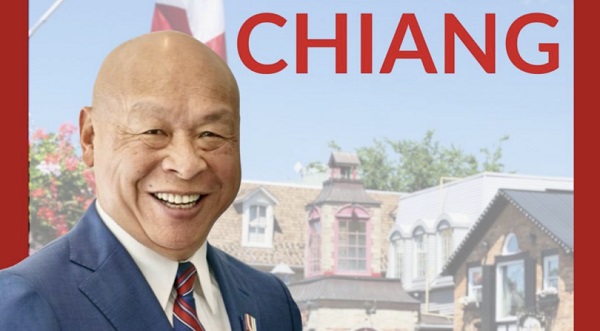Alberta
Alberta backs Saskatchewan in court battle defending parental consent for ‘pronoun changes’

From LifeSiteNews
‘Saskatchewan and Alberta agree that the key figures in children’s lives are their parents, and our provinces are both committed to supporting families and children so that they can work through unique needs together,’ the provinces wrote in a joint letter in defense of parental rights.
Alberta has announced its support of Saskatchewan’s policy requiring parental consent for children to go by different pronouns at school amid a lawsuit against the policy by an LGBT activist group.
On April 9, Alberta Minister of Justice and Attorney General Mickey Amery and Saskatchewan Minister of Justice and Attorney General Bronwyn Eyre revealed that Alberta will intervene in Saskatchewan’s Parents’ Bill of Rights case challenging their new pro-family laws.
“Saskatchewan and Alberta agree that the key figures in children’s lives are their parents, and our provinces are both committed to supporting families and children so that they can work through unique needs together,” the joint statement read.
“Notifying parents and requiring their consent before a child’s name or pronouns can be changed in schools, and before classroom discussions about gender identity and other sensitive subjects occur, ensures that the parent-child relationship is respected and paramount,” it continued.
The pronoun policy is just one part of Saskatchewan’s new “Parental Inclusion and Consent Policies,” which also include provisions that ensure parents are allowed to opt their kids out of sex-ed, and that third-party presentations from groups such as Planned Parenthood will be prohibited from taking place.
After the policies were put forth, LGBT activist group UR Pride Centre for Sexuality and Gender Diversity at the University of Regina, represented by Egale Canada, filed a lawsuit to reverse the pro-family laws.
While a judge has ruled in favor of the LGBT group, Saskatchewan Premier Scott Moe announced in response that he will invoke his government’s notwithstanding clause to protect the legislation from the courts.
The notwithstanding clause, embedded in section 33 of the Canadian Charter of Rights and Freedoms, allows provinces to temporarily override sections of the Charter to protect new laws from being scrapped while higher courts make a determination on the constitutionality of the law.
The case is set to be heard in the Saskatchewan Court of Appeal. During the case, Saskatchewan will now be supported by Alberta, which has committed to intervene in the appeal.
“Alberta will seek to advance legal arguments that Saskatchewan’s use of section 33 of the Charter (the Parliamentary Supremacy Clause) should have prevented Saskatchewan’s Court of King’s Bench from reviewing the constitutionality of the Education (Parent’s Bill of Rights) Amendment Act, 2023 legislation,” the province promised.
“This case has the potential to impact not only parental rights across Canada, but also the application of the Parliamentary Supremacy Clause, which has been an integral piece of the Canadian Charter of Rights and Freedoms and the Constitution of Canada since 1982,” it declared.
Similar to Saskatchewan, Alberta recently introduced its much-anticipated pro-family legislation protecting children and parental rights from the worst results of transgender ideology, including banning doctors from medically ‘transitioning’ children, requiring parental consent for pronoun changes in school, and barring men claiming to be women from women’s sports.
Recent surveys have shown that Moe is acting in the interest of Saskatchewan parents by introducing legislation protecting school children from LGBT propaganda.
According to an August 2023 survey, 86 percent of Saskatchewan participants advocated for parental rights, supporting the province’s new approach to the LGBT agenda in schools.
Furthermore, over 40,000 Canadians have pledged their support for Saskatchewan’s fight for parental rights in the classroom, also calling on all other provinces to follow suit.
Additionally, a Saskatchewan teacher wishing to remain anonymous previously told LifeSiteNews that she feels guilty about keeping secrets from parents and supports the decision to keep parents informed.
“I fear that we are not supporting students or parents when we keep secrets,” she explained. “We have many students using alternate names, which sometimes changes frequently during the year, and then are asked by parents if we were aware of the changes after the fact. I feel responsible for keeping the secret and I don’t think it’s fair. I think schools are already taking on too many ‘parent roles’ and it’s important that parents play the ‘parent role’ not teachers!”
Alberta
Big win for Alberta and Canada: Statement from Premier Smith

Premier Danielle Smith issued the following statement on the April 2, 2025 U.S. tariff announcement:
“Today was an important win for Canada and Alberta, as it appears the United States has decided to uphold the majority of the free trade agreement (CUSMA) between our two nations. It also appears this will continue to be the case until after the Canadian federal election has concluded and the newly elected Canadian government is able to renegotiate CUSMA with the U.S. administration.
“This is precisely what I have been advocating for from the U.S. administration for months.
“It means that the majority of goods sold into the United States from Canada will have no tariffs applied to them, including zero per cent tariffs on energy, minerals, agricultural products, uranium, seafood, potash and host of other Canadian goods.
“There is still work to be done, of course. Unfortunately, tariffs previously announced by the United States on Canadian automobiles, steel and aluminum have not been removed. The efforts of premiers and the federal government should therefore shift towards removing or significantly reducing these remaining tariffs as we go forward and ensuring affected workers across Canada are generously supported until the situation is resolved.
“I again call on all involved in our national advocacy efforts to focus on diplomacy and persuasion while avoiding unnecessary escalation. Clearly, this strategy has been the most effective to this point.
“As it appears the worst of this tariff dispute is behind us (though there is still work to be done), it is my sincere hope that we, as Canadians, can abandon the disastrous policies that have made Canada vulnerable to and overly dependent on the United States, fast-track national resource corridors, get out of the way of provincial resource development and turn our country into an independent economic juggernaut and energy superpower.”
Alberta
Energy sector will fuel Alberta economy and Canada’s exports for many years to come

From the Fraser Institute
By any measure, Alberta is an energy powerhouse—within Canada, but also on a global scale. In 2023, it produced 85 per cent of Canada’s oil and three-fifths of the country’s natural gas. Most of Canada’s oil reserves are in Alberta, along with a majority of natural gas reserves. Alberta is the beating heart of the Canadian energy economy. And energy, in turn, accounts for one-quarter of Canada’s international exports.
Consider some key facts about the province’s energy landscape, as noted in the Alberta Energy Regulator’s (AER) 2023 annual report. Oil and natural gas production continued to rise (on a volume basis) in 2023, on the heels of steady increases over the preceding half decade. However, the dollar value of Alberta’s oil and gas production fell in 2023, as the surging prices recorded in 2022 following Russia’s invasion of Ukraine retreated. Capital spending in the province’s energy sector reached $30 billion in 2023, making it the leading driver of private-sector investment. And completion of the Trans Mountain pipeline expansion project has opened new offshore export avenues for Canada’s oil industry and should boost Alberta’s energy production and exports going forward.
In a world striving to address climate change, Alberta’s hydrocarbon-heavy energy sector faces challenges. At some point, the world may start to consume less oil and, later, less natural gas (in absolute terms). But such “peak” consumption hasn’t arrived yet, nor does it appear imminent. While the demand for certain refined petroleum products is trending down in some advanced economies, particularly in Europe, we should take a broader global perspective when assessing energy demand and supply trends.
Looking at the worldwide picture, Goldman Sachs’ 2024 global energy forecast predicts that “oil usage will increase through 2034” thanks to strong demand in emerging markets and growing production of petrochemicals that depend on oil as the principal feedstock. Global demand for natural gas (including LNG) will also continue to increase, particularly since natural gas is the least carbon-intensive fossil fuel and more of it is being traded in the form of liquefied natural gas (LNG).
Against this backdrop, there are reasons to be optimistic about the prospects for Alberta’s energy sector, particularly if the federal government dials back some of the economically destructive energy and climate policies adopted by the last government. According to the AER’s “base case” forecast, overall energy output will expand over the next 10 years. Oilsands output is projected to grow modestly; natural gas production will also rise, in part due to greater demand for Alberta’s upstream gas from LNG operators in British Columbia.
The AER’s forecast also points to a positive trajectory for capital spending across the province’s energy sector. The agency sees annual investment rising from almost $30 billion to $40 billion by 2033. Most of this takes place in the oil and gas industry, but “emerging” energy resources and projects aimed at climate mitigation are expected to represent a bigger slice of energy-related capital spending going forward.
Like many other oil and gas producing jurisdictions, Alberta must navigate the bumpy journey to a lower-carbon future. But the world is set to remain dependent on fossil fuels for decades to come. This suggests the energy sector will continue to underpin not only the Alberta economy but also Canada’s export portfolio for the foreseeable future.
-

 2025 Federal Election2 days ago
2025 Federal Election2 days agoWEF video shows Mark Carney pushing financial ‘revolution’ based on ‘net zero’ goals
-

 Break The Needle2 days ago
Break The Needle2 days agoWhy psychedelic therapy is stuck in the waiting room
-

 2025 Federal Election2 days ago
2025 Federal Election2 days agoThree cheers for Poilievre’s alcohol tax cut
-

 2025 Federal Election2 days ago
2025 Federal Election2 days agoMORE OF THE SAME: Mark Carney Admits He Will Not Repeal the Liberal’s Bill C-69 – The ‘No Pipelines’ Bill
-

 2025 Federal Election2 days ago
2025 Federal Election2 days ago‘Coordinated and Alarming’: Allegations of Chinese Voter Suppression in 2021 Race That Flipped Toronto Riding to Liberals and Paul Chiang
-

 Business1 day ago
Business1 day agoCanada may escape the worst as Trump declares America’s economic independence with Liberation Day tariffs
-

 2025 Federal Election2 days ago
2025 Federal Election2 days agoDon’t let the Liberals fool you on electric cars
-

 2025 Federal Election2 days ago
2025 Federal Election2 days agoLiberal MP resigns after promoting Chinese government bounty on Conservative rival










